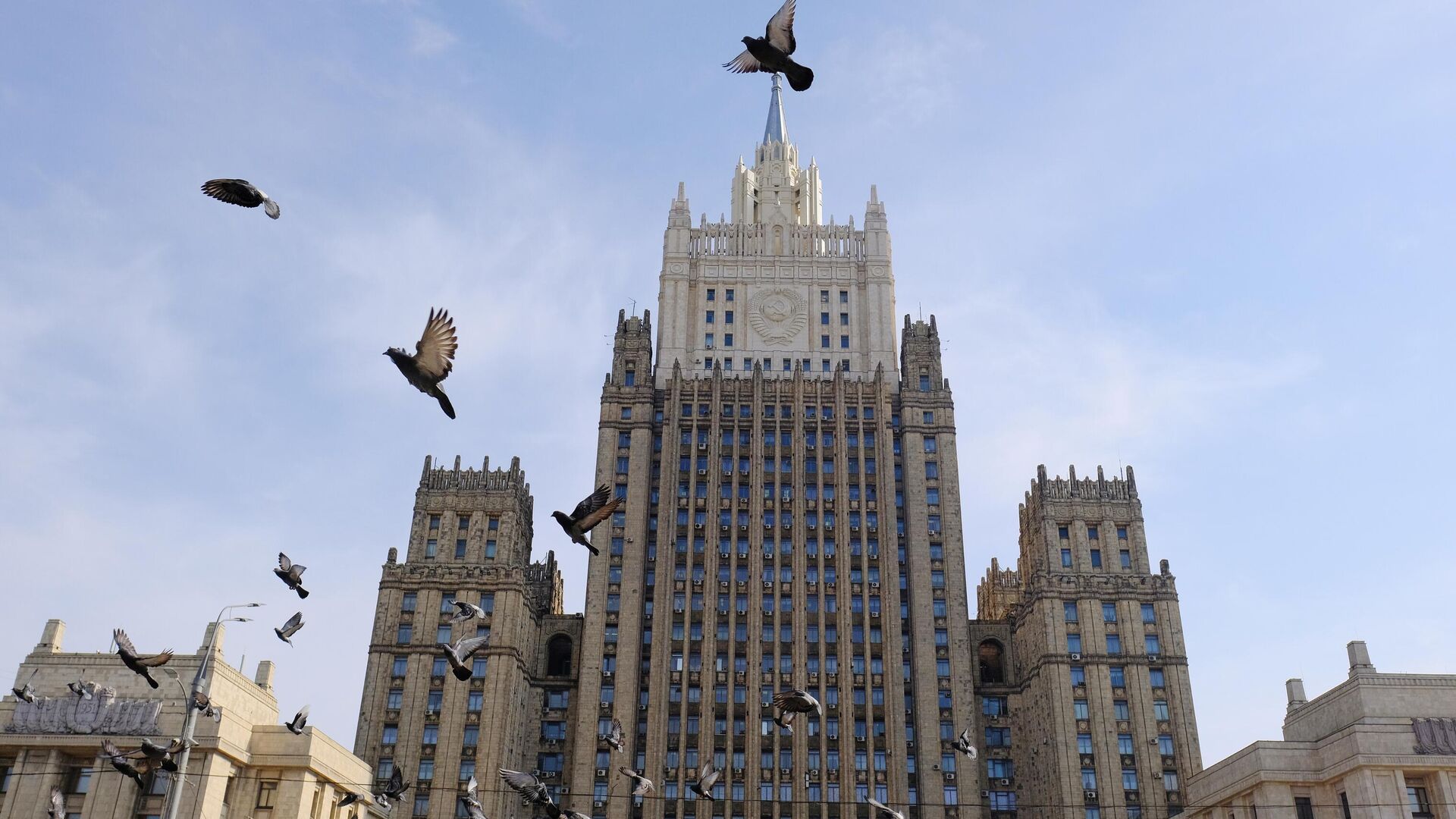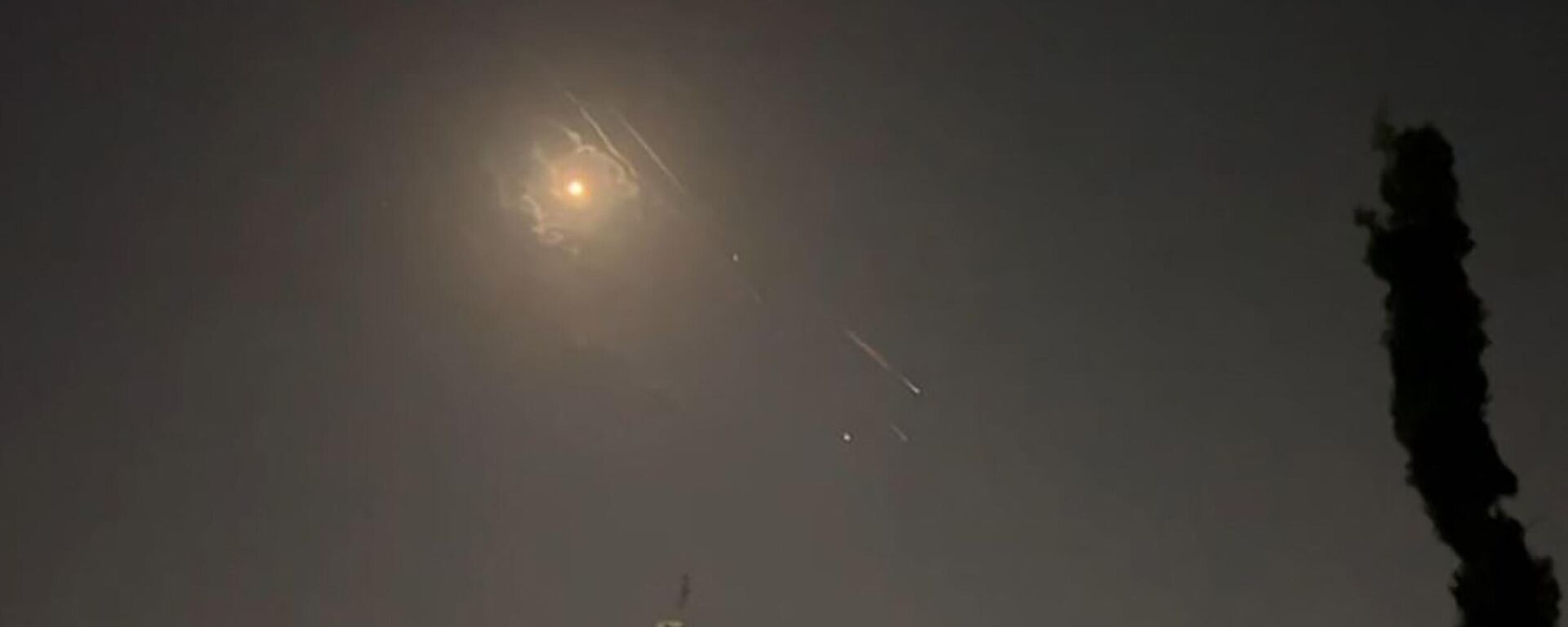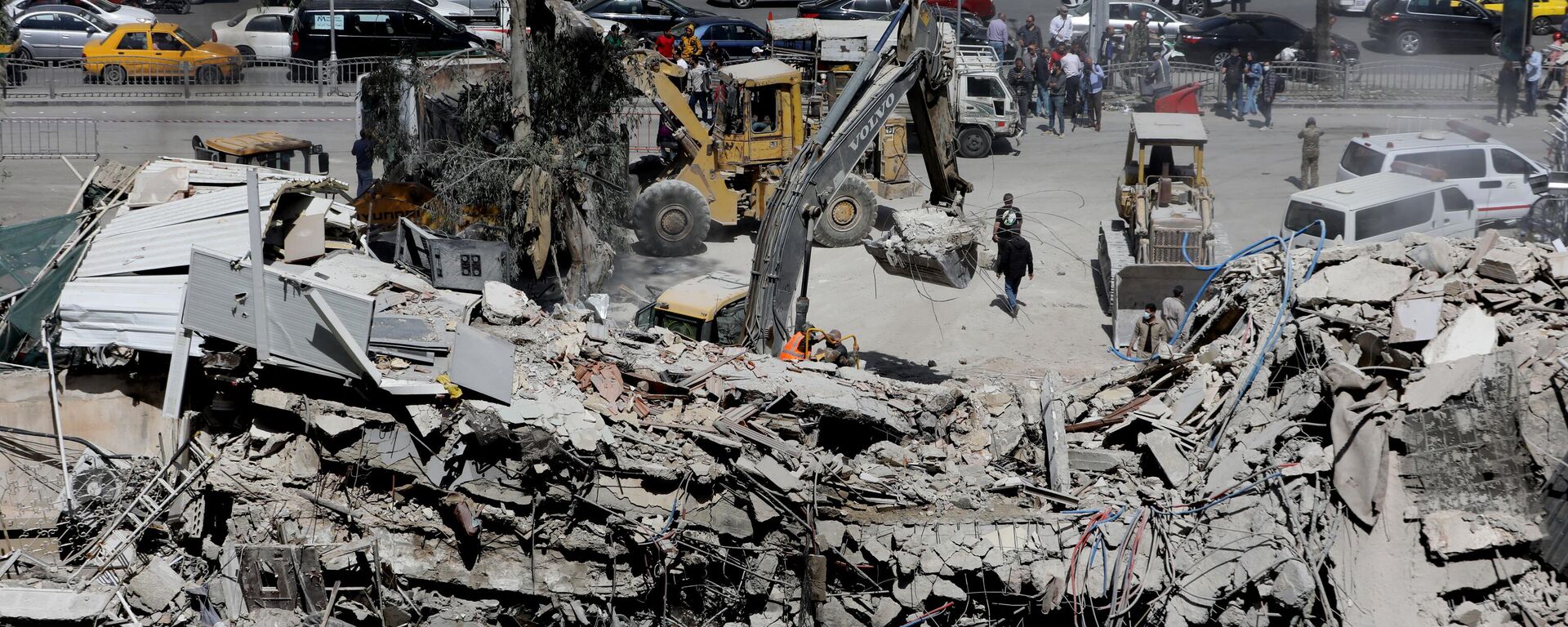Russia Expresses 'Utmost Concern' About Potential Escalation in Wake of Iran's Self-Defense Strikes
09:08 GMT 14.04.2024 (Updated: 10:31 GMT 14.04.2024)

© Sputnik / Natalia Seliverstova
Subscribe
Iran launched a massive missile and drone barrage Saturday night targeting military facilities across Israel in retaliation to Tel Aviv's unprovoked April 1 attack on the Iranian Embassy compound in Damascus, Syria.
The Russian Foreign Ministry responded to Iran's overnight strikes inside Israel Sunday, citing the Islamic Republic's right to self-defense in accordance with Article 51 of the UN Charter, but warning that numerous "unresolved" crises in the Middle East, and the behavior of Western powers, could lead to a further escalation in the region.
"On the night of April 14, a large number of missiles and drones were launched into Israel. According to the Iranian Foreign Ministry, this attack was carried out within the framework of the right of self-defense, in accordance with Article 51 of the UN Charter, in response to attacks on Iranian facilities in the region, including the attack on the building of the consular department of the Iranian Embassy in Damascus on April 1, which our country strongly condemned," the Foreign Ministry said in a statement.
"Unfortunately, due to the position of its Western members, the UN Security Council was unable to adequately respond to the attack on the Iranian consular mission," the ministry added.
"We express our utmost concern about another dangerous escalation in the region. We have repeatedly warned that the failure to resolve numerous crisis in the Middle East, especially in regard to the Palestinian-Israeli conflict...will lead to increased tensions. We call on all parties involved to exercise restraint. We hope that regional countries will solve existing problems through political and diplomatic means. We believe it is important that constructive international players contribute to this," the statement said.
Iran's 'Lesson' for Israel
Iran's mission to the United Nations announced Sunday that its overnight retaliatory attack on Israel had "concluded," but warned that "should the Israeli regime make another mistake, Iran's response will be considerably more severe."
The mission also warned Israel's US allies, stressing that the conflict between Iran and "the rogue Israeli regime" is one "from which the US MUST STAY AWAY!"
Iranian President Ebrahim Raisi said later in the day Sunday that the "zealous and courageous children of the Islamic Revolutionary Guard Corps, with the cooperation and coordination of all the defense and political sectors of the country, turned a new page in the history of Iran's authority and taught the Zionist enemy a lesson."
IRGC Commander-in-Chief Hossein Salami urged Israel to "stop its past behavior and learn from" Iran's overnight attack, warning that "if the Zionist regime shows any response, our reaction will certainly be much harsher based on this new experience we have gained" from testing Israel's capabilities.
"From now on, if the Zionist regime attacks our interests, assets, figures, and citizens at any point on Earth, it will face counterattack from within the Islamic Republic of Iran," Salami stressed.
Iranian Armed Forces Chief of Staff Mohammad Bagheri echoed Salami's sentiments, saying the Iranian punitive action, dubbed Operation True Promise, had accomplished its objectives, which were restricted to military targets.
"Their population and economic centers were not hit, so that the criminal and aggressive Zionist army would realize that their action won't remain unanswered. We are definitely prepared to defend our soil and interests," Bagheri said, warning that Iran has the capability to launch a drone and missile barrage "tens of times" more powerful than the demonstrative strikes carried out Sunday morning.
Commenting on the Iranian attack in a television appearance on Sunday, Israeli Prime Minister Benjamin Netanyahu threatened to to retaliation, saying "whoever hurts us, we will hurt them."
However, the Biden administration has sent signals to Tel Aviv that it will not be taking part in any retaliatory Israeli attacks on Iran, with Pentagon Chief Lloyd Austin taking to X to stress that the US does "not seek conflict with Iran, but will not hesitate to act to protect our forces and support the defense of Israel."
Axios reported Sunday citing a senior White House official that President Joe Biden had privately told Netanyahu that the US wouldn't support "any" Israeli counterattack against Iran. If true, it would make a direct Israeli aerial attack on Iranian soil more difficult, since its warplanes cannot reach the Islamic Republic and make it back home without the assistance of US tanker aircraft.



